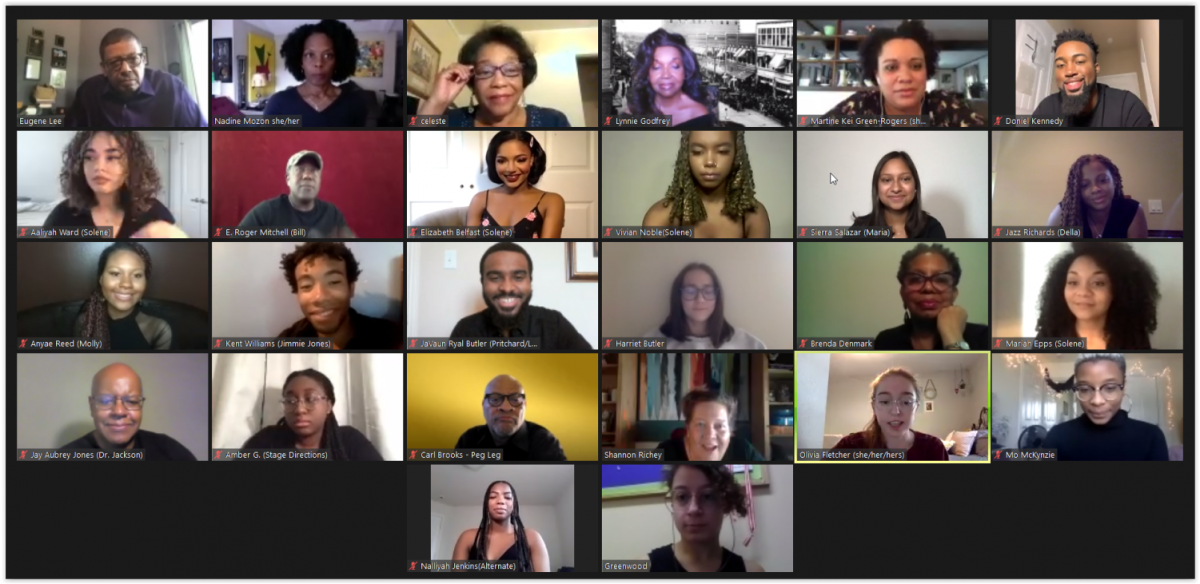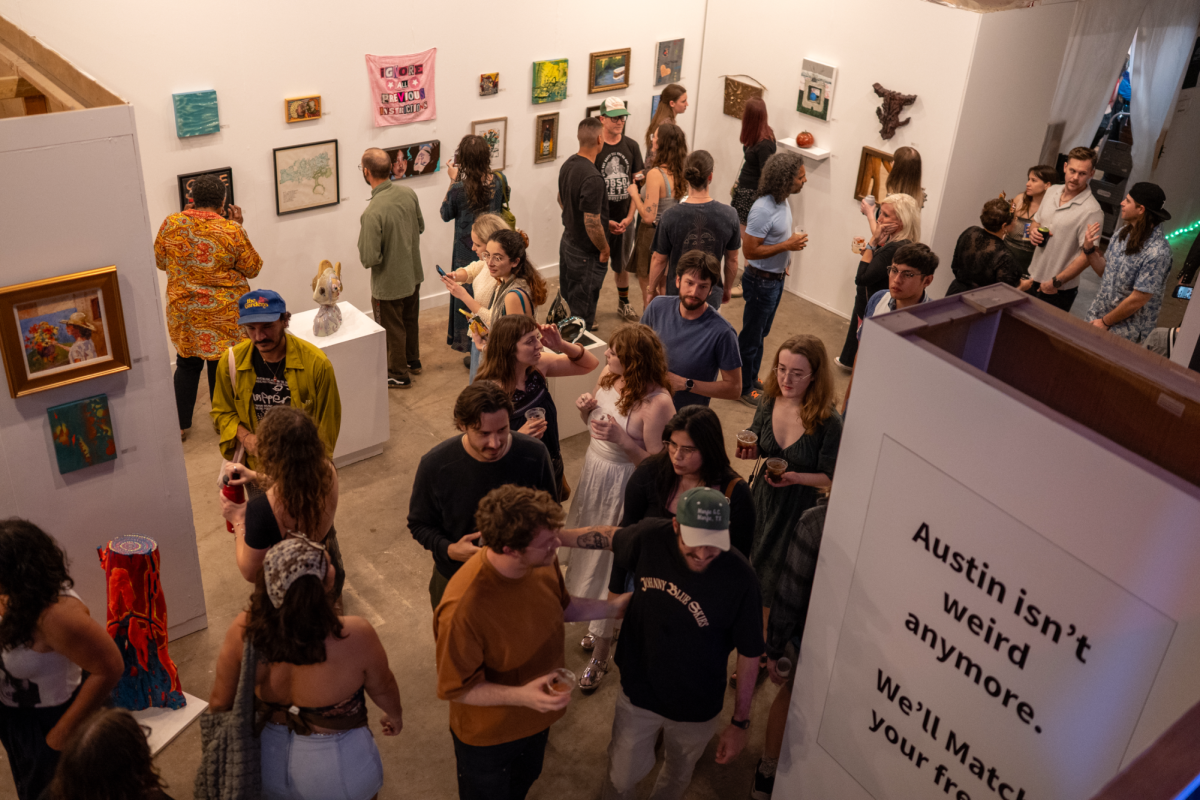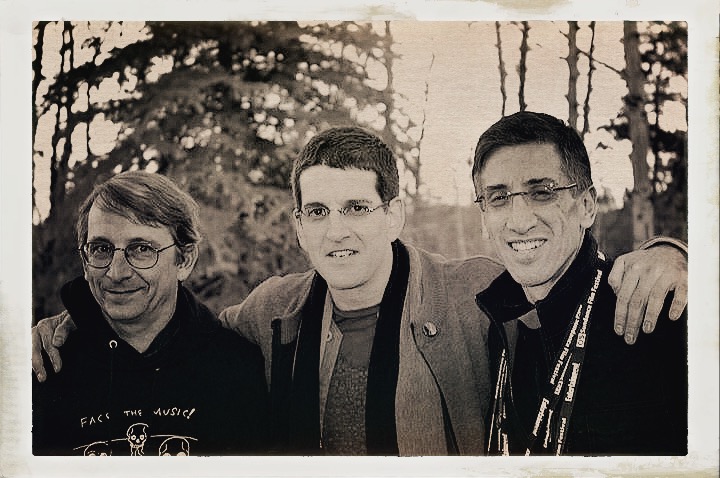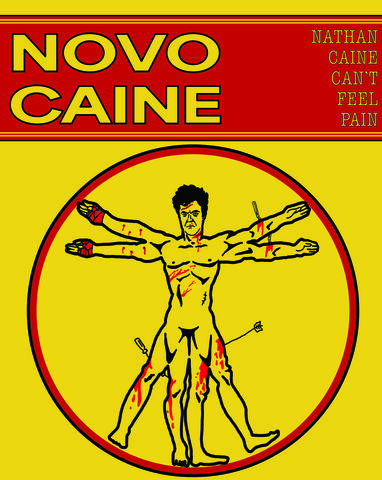Mariah Epps sat alone in her dimly lit living room, belting to Kirk Franklin’s “I Smile”, a joyous record of perseverance and celebration across Black and Brown communities.
Miles away from Epps, a Texas State acting sophomore, were audience members also ‘smiling’ from their living room couches, gathered around their television screens to celebrate the work of various playwrights of color in this year’s virtual Black and Latino Playwright Celebration (BLPC).
BLPC, an annual event conducted by the Department of Theater and Dance, is devoted to the development of two never-produced plays by unpublished Black and Latino playwrights. The celebration provides the playwrights with dramaturgical assistance, a guest director and a handful of actors to utilize in their work.
Each year, one playwright of color is chosen to be honored through a performance of selections of their work, and in return, they gift audiences advice and insight into their artistic past. The weekend kicked off Sept. 4 with a tribute to Gus Edwards, this season’s honored playwright.
Normally, the tribute is held on campus in the Patti Strickel Harrison Theatre, but this year’s director, Nadine Mozon, an acting faculty member, was tasked with changing the performance to a virtual format.
“We were constantly fusing a theater-based approach to storytelling with expressions that translate virtually and digitally, whether it was Zoom recorded or self-taped,” Mozon said.
At first, both the cast and the artistic team were skeptical about the change in format. Vivian Noble, an acting sophomore who took part in the tribute, had a hard time with the idea of committing to rehearsals on a screen 10 feet from her bed. She felt exhausted, burnt out and “numb” due to the overwhelming stress of current events in the news.
“You wake up and you see all these killings of Black people,” Noble said. It felt suffocating, and it was hard for Noble to get back into life.
“Being able to be a part of BLPC was like a breath of fresh air,” Noble said. “I was surrounded by talented Black artists and beautiful souls that were in the same place as me emotionally.”
The tribute provided a breath of fresh air for Mozon as well. “Rehearsals became a kind of refuge,” she said. “A community of healing and creative release.”
In a collaborative process with the actors, Mozon combined music, breath and scenes from Edwards’ “Brother Man, Brother Man” and “Six Weeks”. The virtual platform also allowed the presentation of a scene from Edwards’ 1984 film, “Go Tell It on the Mountain”.
Edwards was born in the Caribbean and moved to New York at the age of 19 to pursue a career in playwriting. His talkback with the audience opened with a shaking camera and sweet smile as he broadcasted live from his own kitchen.
“Theater is healthier than ever, and it will continue being,” Edwards said.
Through an inspiring speech, Edwards shared his experiences of moving to New York and the struggles he faced when he first arrived.
For 18 years, he waited for his plays to come to life while writing, working and growing as an artist. And finally, in 1977, the Negro Ensemble Company produced not one, but two of his plays.
BLPC’s Artistic Director Eugene Lee has personally worked with Edwards at the Negro Ensemble Theatre, performing in a few of his plays.
When selecting which playwright to honor, Lee always takes his circle into consideration. Lee stressed that theater is a community, and part of his personal mission for the celebration is to take the theater legends he has worked with, such as Edwards, and “introduce them to people here in South Texas who don’t know who they are.”
Edwards ended the talkback with his signature smile and proudly held up his honoree award to the light. As he signed off, numerous “thank you’s” for his inspiring words and positivity rolled in from the Zoom chat feature.
On Sept. 5, Lee introduced this year’s first play in development, “Stoop Pigeons” by Christin Eve Cato.
When choosing a play to develop, Lee first looks for a playwright who writes clarity and truth. “Stoop Pigeons”, to Lee, did just that.
In a series of rapid dialogue, “Stoop Pigeons” exposes hard truths of gentrification in Brooklyn in the early 2000s and how it amplified both drug-related crime and drastically affected the local Black and Brown population.
This truth touched the audience and cast. “The humanity, truth and struggles of each character were breathtaking,” an anonymous viewer commented.
The throughline of truth continued into the Sept. 6 reading of “Greenwood: An American Dream Destroyed”, by Celeste Bedford Walker.
Centering around the Boley family, a Black family living in Tulsa, Oklahoma, the story follows Jimmy Jones, who was arrested in Tulsa on an unsubstantiated charge. For the next 24 hours, the town saw itself destroyed by white mobs.
This story, although with fictional characters, is based deeply in historical truth. From May 30 to June 1 in 1921, the Greenwood District of Tulsa was destroyed and impacted families and individuals in a similar way.
“The fact that no history class I’ve had has ever talked about this event is awful,” viewer Elena Martinez, a film junior, commented. “Thank you for not only teaching us some history but also giving us insights into the human stories behind this tragedy.”
President Denise Trauth also attended the reading and thanked Walker for “bringing this powerful play to life.”
The playwright studying, nurturing and celebrating her, his or their craft is the very nature of the celebration, however, this year’s festival did much more to connect different communities.
Art is meant to “bridge the cultural gap,” Lee reminded viewers. It brings people from all different backgrounds and cultures together for a shared experience.
“If a racist watches a Black play and realizes, ‘damn, they have the same feelings I do,’ and they change their mind, then that’s when art does its most important job, and why art is important to the world,” Lee said. “Because it contributes so much to bringing the world together.”
For more information about the 2020 Black and Latino Playwright Celebration and to see the full cast and artistic team biographies, visit the celebration’s program.
Categories:
Bridging the gap: Theater and Dance hosts annual Black and Latino Playwright Celebration
September 7, 2020
The full cast of “Greenwood: An American Dream Destroyed” on display after their live reading Sunday, Sept. 6., 2020 on Zoom. The cast features Eugene Lee, Nadine Mozon, playwright Celeste Bedford Walker and director Lynnie Godfrey. The Black and Latino Playwright Celebration is an annual event conducted by the Department of Theater and Dance, devoted to the development of two never-produced plays by unpublished Black and Latino playwrights.
0
Donate to The University Star
Your donation will support the student journalists of Texas State University. Your contribution will allow us to purchase equipment and cover our annual website hosting costs.
More to Discover









